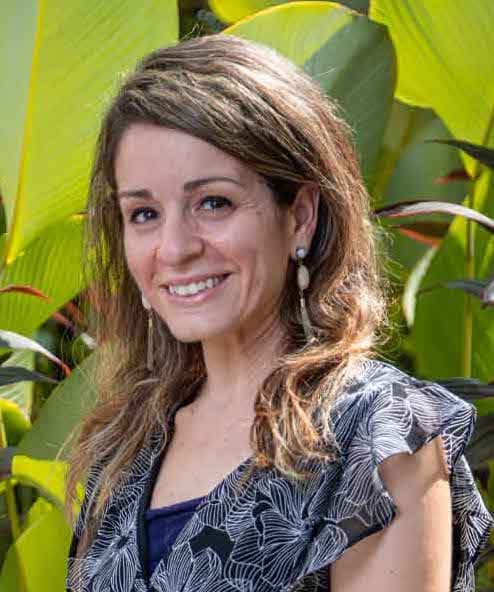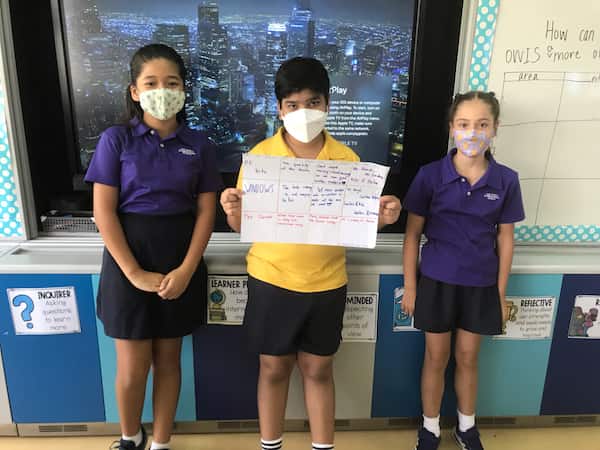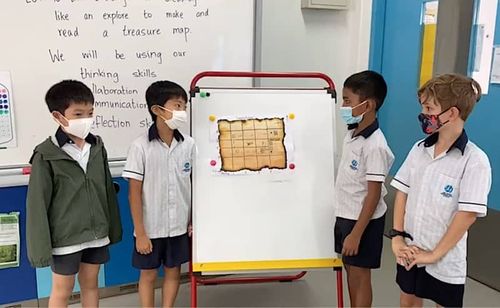A decade or so ago, a common sight in most school classrooms would have been the teacher at the front of the class explaining the topic being studied through most of the lesson, while students were expected to obediently listen or take notes. The opportunity for students to express an opinion or participate in any way only came about by raising one’s hand confidently or when the teacher called out a pupil’s name, asking for a response. In fact, this is still a common practice in classrooms that run on this traditional model of pedagogy.
However, IB schools are quite different in their student-centric approach to education. The teacher is meant to be a guide or facilitator for learners who inquire into transdisciplinary themes, discuss and collaborate with their classmates for group tasks, and present the findings at the end of their research. An IB classroom is rarely a quiet one. It is always abuzz with discussions that are led by students and the voicing of their perspectives and findings.

Public speaking skills involve understanding the audience, planning precise vocabulary and carefully crafting the message so that it has the greatest effect possible when delivered. These are certainly skills that can be honed in young learners in the classroom.
At One World International School, where we follow the IB Primary Years Programme (IB PYP) in Grades 1 to 5 at our campuses, we create opportunities within our lessons for students to build their public speaking and presentation skills and develop self-confidence in themselves and their abilities.
We spoke to two of our Primary School teachers to gain an insight into the ways and means by which we foster communication skills in our learners.
Jessica Saiya, Grade 4 teacher at OWIS Nanyang, our international school campus in West Singapore, explained that the student-focussed and inquiry-based framework of the IB PYP curriculum presents several opportunities for public speaking.

“In our Primary School, our students develop these abilities through the natural process of their inquiry on a daily or weekly basis. For example, in the Grade 4 Unit of Inquiry ‘How the World Works,’ students develop persuasive speeches for their target audience in order to convince them to purchase their marketed product. In every public speaking opportunity, the students who form the audience provide meaningful feedback which the presenting student can assimilate into their public speaking goals.
Any child can read from a screen or script but not many can communicate with fluency and confidence. One of the most common areas for growth in our students is their voice level, eye contact and articulation when presenting. With teacher modelling, peer feedback and the use of public speaking rubrics, all students develop goals to improve in their public speaking skills in order to become better communicators – a necessary aspect of taking action as an ongoing part of the cycle of inquiry.”
Laura Coulter, who teaches Grades 4 and 5 at OWIS Suntec, designs opportunities to help students to slowly level up in their speaking skills and gain confidence to interact with others on a one-to-one and group level. OWIS Suntec, our international school campus in Central Singapore, is an IB PYP Candidate School.

“I like to give plenty of time to students to share their learning and present to groups of different sizes – two students, five students, half the class and the whole class. Along with varying the size of the group, students also get the chance to speak on any number of topics – personal adventures, global issues, current events, books they’ve read, etc. A checklist of public speaking skills can be co-created with the class and usually includes: good posture, volume, eye contact and content knowledge. I also encourage questions to promote active listening – such as what they liked about their peer’s presentation, etc. This preparation allows for frequent practice and awareness, which we know is key to success.
I notice that the students are attentive and encouraging when their classmates present and I am always impressed by the variety of the different types of presentations and the creativity that comes through. No two are ever the same! I am proud when they can politely and confidently interact with other members of staff or out in public using their public speaking skills and their preparation on the topics is evident.”
By being able to communicate well, children build their self-esteem and are able to form social connections easily. With the inputs and modelling provided by our IB-trained teachers, our learners gradually become more confident in presenting their perspectives in group settings. Importantly, our school’s culture of kindness encourages listeners to be receptive to other people’s point of view and respectful in their feedback and the ensuing discussions.
OWIS is an IB World School and we are considered a leading international school in Singapore for our student-centric approach to education. To learn more about the benefits of the IB PYP and how we build 21st century competencies, including public speaking and communication skills in our learners, through our implementation of the framework, please schedule a virtual tour today.














